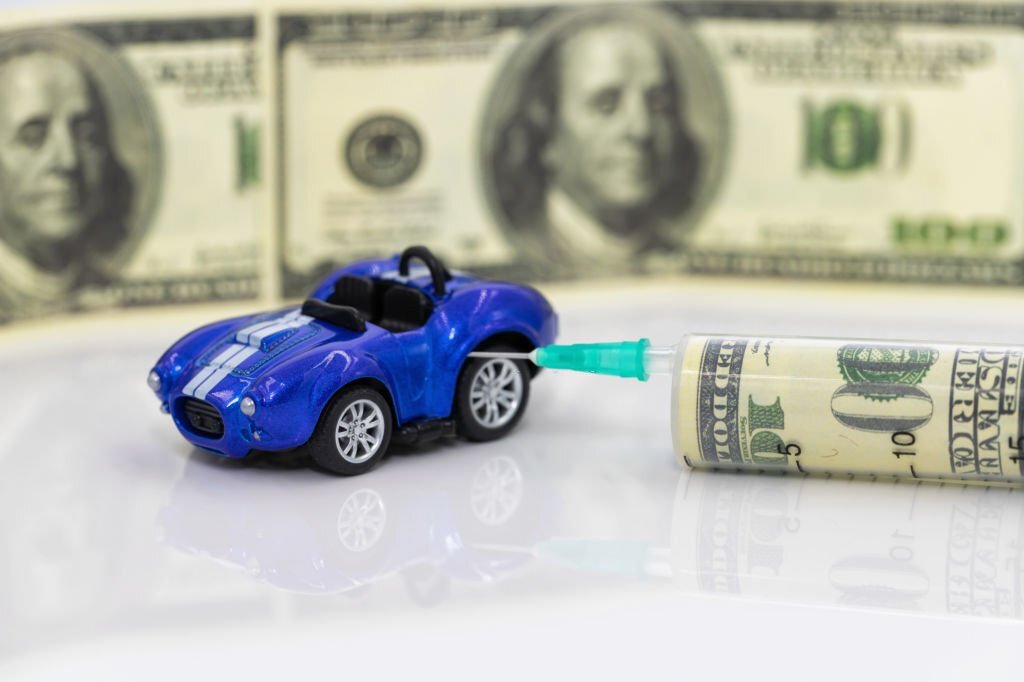Auto insurance premiums are influenced by various factors that insurance companies use to assess risk and determine rates. While some factors can help lower your premiums, certain elements can cause a significant spike in your auto insurance costs. Understanding these factors can empower you to make informed decisions and take necessary precautions to avoid unexpected increases in your insurance premiums. In this article, we will delve into 21 key elements that can lead to a surge in your auto insurance rates.
- Accidents and Claims:
Your history of accidents and filed claims plays a major role in determining your insurance premiums. Being involved in multiple accidents or filing numerous claims suggests a higher risk of future incidents. Insurance companies may respond by increasing your premiums to offset the likelihood of further claims.
- Traffic Violations and Moving Violations:
Traffic violations, such as speeding tickets, reckless driving, running red lights, and DUI/DWI convictions, can significantly impact your auto insurance rates. These violations indicate unsafe driving habits and raise the risk associated with insuring you. Consequently, insurance providers are likely to raise your premiums if you have a history of traffic or moving violations.
- Poor Credit History:
In many states, insurance companies consider your credit history when determining auto insurance premiums. A poor credit history or low credit score can lead to higher insurance rates. Studies have shown a correlation between credit history and the likelihood of filing insurance claims. Maintaining a good credit score is crucial to keeping your premiums affordable.
- Changes in Coverage or Deductibles:
Making changes to your auto insurance coverage or deductibles can impact your premiums. Increasing your coverage limits or reducing your deductibles generally leads to higher premiums. Conversely, lowering your coverage limits or increasing your deductibles can result in lower premiums. Carefully evaluate your coverage needs and consider the potential impact on your insurance costs before making any changes.
- Moving to a Different Location:
Relocating to a different area can affect your auto insurance rates. Insurance companies consider factors such as population density, crime rates, and accident statistics in your new location. If you move to an area with higher traffic volumes, more accidents, or increased crime rates, your premiums are likely to increase to reflect the higher risk associated with your new location.
- Changes in Vehicle:
When you purchase a new car or make modifications to your existing vehicle, it can impact your insurance premiums. Factors such as the make, model, age, and value of the vehicle are considered. High-performance cars, luxury vehicles, or cars with a high theft rate usually come with higher insurance costs. Similarly, modifications that increase the vehicle’s value or performance can lead to increased premiums.
- Age and Life Events:
Your age and significant life events can also affect your auto insurance rates. Younger drivers, especially teenagers, generally face higher insurance premiums due to their limited driving experience. On the other hand, older drivers may experience increased rates as they age, as statistics show a higher risk of accidents in older age groups. Major life events such as getting married or having a teenage driver on your policy can cause your premiums to spike.
- Gender:
Insurance companies may consider gender as a factor in determining auto insurance premiums. Statistics indicate that male drivers tend to have a higher frequency of accidents compared to female drivers. As a result, males may be charged higher premiums to account for the perceived higher risk.
- Marital Status:
Marital status can impact auto insurance rates as well. Married individuals often receive lower insurance premiums compared to single individuals. This is because insurance companies perceive married individuals as being more responsible and less likely to engage in risky driving behaviors.
- Occupation:
Certain occupations may result in higher insurance premiums due to the nature of the work or the frequency of driving. Jobs that require extensive driving or involve higher levels of risk may lead to increased premiums. On the other hand, occupations that are less likely to involve driving may result in lower premiums.
- Annual Mileage:
The number of miles you drive annually can influence your auto insurance rates. Insurance companies consider the likelihood of accidents based on mileage. If you have a long commute or frequently drive long distances, you may face higher insurance rates. On the other hand, if you drive fewer miles per year, you may be eligible for a low-mileage discount, resulting in lower premiums.
- Previous Lapses in Coverage:
A history of lapses in auto insurance coverage can impact your premiums. Insurance companies may view individuals with lapses in coverage as higher-risk drivers. If you have had periods without insurance in the past, it can lead to increased premiums when you reinstate coverage.
- Type of Coverage:
The type of coverage you choose can influence your auto insurance premiums. Comprehensive and collision coverage tend to be more expensive compared to liability-only coverage. Comprehensive and collision coverage protect against damage to your vehicle, while liability coverage protects against damages you may cause to ot
- Deductible Amount:
The deductible amount you select for your policy affects your premiums. A higher deductible generally leads to lower premiums, as you are taking on more of the financial responsibility in the event of a claim. Conversely, a lower deductible results in higher premiums since the insurance company bears a larger portion of the risk.
- Safety Features and Anti-Theft Devices:
Equipping your vehicle with safety features and anti-theft devices can sometimes lead to lower insurance premiums. Safety features such as airbags, anti-lock brakes, and electronic stability control can reduce the risk of severe injuries or accidents. Anti-theft devices like alarms, tracking systems, or immobilizers can deter theft and lower the likelihood of filing a claim.
- Driving Habits:
Your driving habits can impact your insurance rates. Insurance companies may offer discounts for drivers who have completed defensive driving courses or have a history of safe driving. Additionally, enrollment in telematics programs, where your driving habits are monitored, can potentially result in lower premiums if you demonstrate safe driving behaviors.
- Insurance Score:
Apart from credit history, insurance companies often use an insurance score to assess risk. The insurance score is a numerical representation of various factors such as credit history, claims history, and driving record. Individuals with higher insurance scores tend to receive more favorable premiums, while those with lower scores may face higher rates.
- Multi-Policy Discounts:
Insurance companies often offer multi-policy discounts when you bundle multiple insurance policies, such as auto and homeowners insurance, with the same provider. Taking advantage of these discounts can help reduce your auto insurance premiums.
- Annual Policy Renewal:
During your annual policy renewal, your insurance company may review your information and adjust your premiums accordingly. If any factors that influence rates have changed since the previous renewal, such as accidents, claims, or moving to a new location, your premiums may increase.
- State Insurance Regulations:
Auto insurance rates can vary significantly by state due to varying insurance regulations and requirements. Some states have higher average premiums due to factors like higher rates of accidents, higher medical costs, or state-specific coverage requirements. It’s important to consider these regional differences when assessing your insurance costs.
- Insurance Company Rating Factors:
Each insurance company uses its own proprietary rating factors to determine premiums. These factors may include additional criteria specific to the company’s risk assessment model. As a result, premiums for the same driver and coverage can vary among different insurance providers. Comparing quotes from multiple companies can help you find the best rates.
Conclusion:
Understanding the various factors that can cause a spike in your auto insurance premiums is crucial for effectively managing your insurance costs. Factors such as accidents and claims traffic and moving violations, poor credit history, changes in coverage or deductibles, relocation, changes in vehicle, age, gender, marital status, occupation, annual mileage, lapses in coverage, type of coverage, deductible amount, safety features, driving habits, insurance score, multi-policy discounts, annual policy renewal, state insurance regulations, and insurance company rating factors can all impact your auto insurance rates. By being mindful of these factors and taking appropriate steps to mitigate risk, you can work towards keeping your auto insurance premiums affordable.




